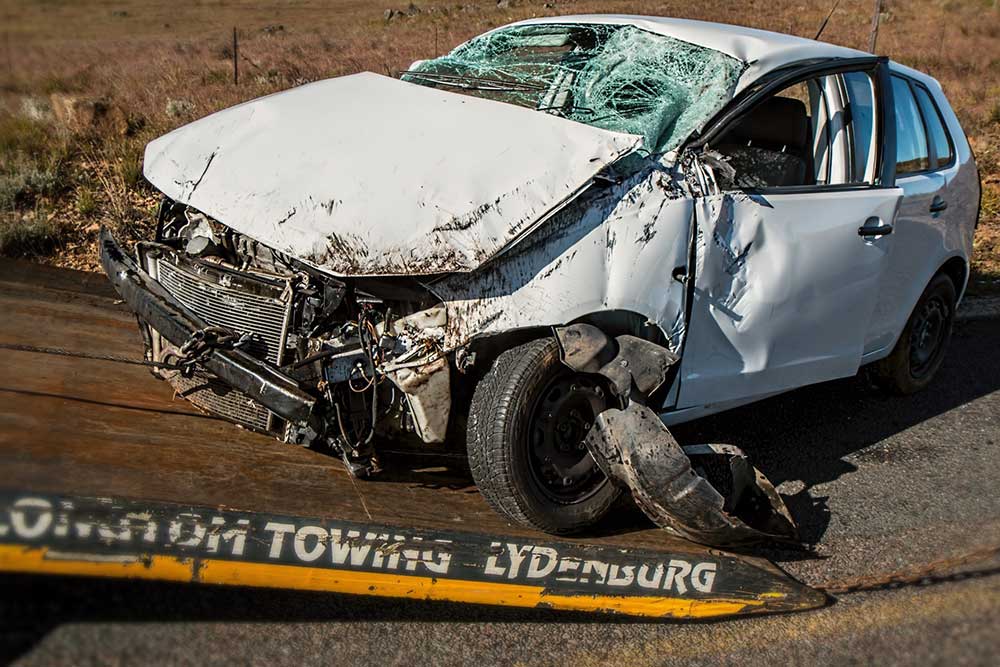
Each year, millions of Americans suffer injuries in accidents or from someone else’s actions. This can disrupt your life and appear in different forms: a fall on unsafe property, a collision on the road, or an injury at work. Many such cases happen due to someone else’s negligence. Thus, the injured person can seek fair compensation for lost wages, medical expenses, and personal or property damage.
But how to file a personal injury claim? Here, many people get stuck. The legal process can feel overwhelming — deadlines, paperwork, and insurance companies trying to minimize payouts. That’s why working with an experienced personal injury lawyer can make all the difference. If you’re unsure where to begin, this guide will walk you through the main steps so you know how to take the right action and what to do after a slip and fall accident.
Document the Accident
The main thing for a successful personal injury claim is reliable evidence. Gather as much evidence as you can; it’s the backbone of your claim and proves negligence of the other party. This is what to do after a motorcycle collision or other accident:
-
Take photos of the accident scene and the circumstances surrounding it
If it was a car accident or vehicles are involved, take pictures of license plates, damage, road signs, etc. If the accident occurred in a public place or a company, document hazardous conditions (wet floors, broken handrails, or lack of signage).
-
Find witnesses
Gather names and contact information for the parties involved and people who saw what happened. Their witness statements can support your case.
-
Write the details
You may think you’ll memorize everything, but memories can fade.
In addition, you should record every appointment, medical treatment plan, prescription, and your recovery experience, including pain levels and limitations. This supports your personal injury case by presenting evidence.
Seek Medical Attention
Even if your injuries seem minor, seek medical treatment right away. If you wait several days to visit a doctor, the insurer may argue your injury wasn’t serious.
Track all medical records, prescriptions, appointments, and medical bills. This medical documentation proves the physical and financial effects of your injury, determining the damages in personal injury cases.
Consult a Personal Injury Lawyer Early
Having legal representation isn’t a requirement. However, handling an injury claim without a skilled personal injury attorney can be overwhelming. Strict deadlines, massive paperwork, and arguing with a defendant or their insurance company are a challenge, especially while obtaining medical records and dealing with expenses and pain.
Consulting a skilled injury lawyer provides the protection and smooth management of your case. A legal professional assesses the strength of your demand letter, calculates potential compensation, and communicates with an insurance company. To understand what hiring a lawyer may cost and what to expect, read our article on the personal injury lawyer cost.
Establish Liability
If you want to succeed in a personal injury claim, you should prove that another party was responsible for your injuries. In most personal injury cases, you should prove liability through the four elements: duty, breach, causation, and damages.
Your injury attorney gathers and evaluates relevant evidence, photos, or video footage, witness statements, and expert opinions. For example, a workplace accident may require proof of breach of safety protocols. This part is vital in determining the strength of your claim.
Setting Up Your Claim and Notifying the At-Fault Party
Once you obtain evidence, start the personal injury claims process and notify the party responsible for your injuries and their insurance provider. Your lawyer will send a demand letter explaining what happened. Usually, this notice outlines your claim basis, details your injuries, and states the fair compensation you are seeking.
Sending this notice is an important step in the personal injury claim process. It signals your intent to file an injury claim and places a legal obligation on the other party.
The steps can vary depending on how and where the accident happened. If it happened at work, the notice will go to a company or government agency. If it was a car accident or happened in a public place, the other party’s insurance provider will receive the notice. Don’t wait too long, as it can reduce your chances of getting maximum compensation, and do not forget to pay legal fees.
Handle the Insurance Negotiation with Strategy
Once you file a personal injury claim, the insurance company will review and evaluate the case to present an initial settlement offer. It can be a relief, but remember – early offers are often lower than what your damages deserve.
If the insurance company refuses to offer a reasonable settlement, your lawyer can help with this or recommend filing a lawsuit. That’s where you need experienced negotiation. An experienced personal injury attorney will communicate with the insurer company about your medical treatment, lost wages, pain and suffering, and other impacts. To learn how to strengthen your case value, read our guide on how to negotiate your settlement.
This can be time-consuming, still it’s crucial in the claim process. Here, you have a chance to resolve the claim in your favor.

Get a Free Case Evaluation
Filing a Lawsuit When Negotiations Stall
Sometimes, the insurance company refuses a fair settlement. Thus, filing a personal injury lawsuit may be necessary. Don’t worry, many personal injury claims settle before reaching the appropriate court, but you can prove you’re ready to pursue the matter.
Here, strong documentation matters. Prepare your medical records, witness statements, and any relevant evidence, such as accident reports or photos. This will strengthen your position during the legal process.
Depending on the circumstances, you may need to address different institutions. For example, contact a government agency or a company you work for, for workplace injuries, or a private insurer if a business or individual is at fault. Still, before proceeding to court, it’s helpful to understand the average personal injury settlement to weigh the potential benefits against the costs of litigation.
Alternatives to Trial
Before going to trial, you may use mediation to resolve disputes. This procedure brings two parties together with a neutral mediator who guides a conversation to find common ground.
The process starts with each party presenting their side of the case and proposed outcomes. The mediator may then speak privately with each side to explore concerns and suggest compromises.
Mediation is faster and more cost-effective than court, especially for small personal injury claims. Each involved party has a chance to express concerns and reach a mutual agreement. Even if mediation doesn’t lead to a settlement, it helps clarify the legal issues and sets the stage for further legal action, if needed.
Need Help? Contact Michael Kelly Injury Lawyers for a Free Consultation!
Filing an injury lawsuit or claim may seem complex. Still, you don’t have to handle it by yourself. With Michael Kelly Injury Lawyers, you’ll have the right legal guidance and advocacy.
We handle all the necessary documentation, communicate with the insurance company, and seek compensation for your medical bills, lost income, and other damages under the legal system’s personal injury law. Reach out now for a consultation, and let’s build your case with confidence!






